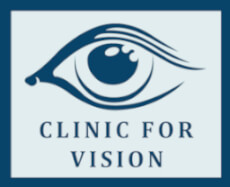
Is Macular Degeneration Hereditary?
Here’s a question many patients ask about age-related macular degeneration (AMD): “Is it hereditary?” It’s a good question since genetics often play a role in AMD.
Your risk of developing AMD is three to four times higher if a parent or sibling has the disease. On the plus side, knowing that the disease runs in your family gives you a head start when it comes to prevention. There are steps you can take today to lower your risk and catch macular degeneration as early as possible. The earlier it’s detected, the better.
What is AMD?
Age-related macular degeneration is one of the most common causes of vision loss in people over age 50. AMD is a progressive eye disease that damages the macula, the part of the retina that allows us to see objects clearly. The loss of central vision hinders the ability to read, drive, watch television, and do routine tasks.
There are two types of AMD — dry and wet.
Dry AMD, which causes about 90% of all cases, progresses slowly and painlessly over many years. Wet AMD, which comprises 10% of all cases, is much more aggressive and can cause severe vision loss in a matter of weeks or months.
Besides a family history of AMD, other factors that can increase your risk of getting developing this eye disease. These include:
- Age (50 and older)
- Smoking
- Excessive exposure to sunlight
- High blood pressure
- Obesity
If you are aged 50 or older, it is recommended to have a comprehensive eye exam at least annually, especially if you are at a higher risk or show symptoms of vision loss. Early signs may include shadowy areas in your central vision or unusually fuzzy or distorted vision.
Preventing AMD
While there is currently no cure for AMD, there are some things you can do to lower your risk of vision loss.
The Age-Related Eye Disease Study (AREDS) and AREDS2 studies, conducted by the National Eye Institute, showed that supplements can reduce the risk of progression in patients with moderate to advanced AMD by around 25%.
Currently the AREDS and AREDS2 formulas are the only available treatments proven to be effective for intermediate-to-severe dry AMD.
AREDS:
*Not recommended for current or former smokers as it contains beta-carotene which has been linked to a heightened risk of lung cancer in smokers.
- Zinc
- Vitamin C
- Vitamin E
- Copper
- Vitamin A (Beta Carotene)
AREDS2:
*Beta-carotene in the original AREDS formulation is replaced by lutein and zeaxanthin, providing a safer supplement for those who are smokers or former smokers.
- Zinc (lower dose than AREDS)
- Lutein
- Zeaxanthin
- Vitamin C
- Vitamin E
- Copper
Speak to your eye doctor about taking a daily dose AREDS/AREDS2 supplements. This formulation is also available in a range of commercially available capsules.
Other adjustments that you can make in your daily life may help prevent or delay AMD. These include:
- Eating foods with omega-3 fatty acids
- Wearing UV protective sunglasses to protect your eyes from the sun
- Controlling high blood pressure
- Exercising regularly
- Giving up smoking, if you smoke
Having a comprehensive eye exam is the best way to prevent vision loss from macular degeneration, with or without a family history of AMD. Our eye care professionals are ready to speak with you about the condition and answer any questions you may have. Get the conversation started and schedule a consultation with Dr. Kate McCurdy today.
Our team can help you better understand your risk of AMD, accurately diagnose you if you already have the condition, and create a treatment plan based on your specific needs.
Clinic for Vision PC Low Vision Center serves patients from , Boaz, Guntersville, and Crossville, throughout Alabama.

